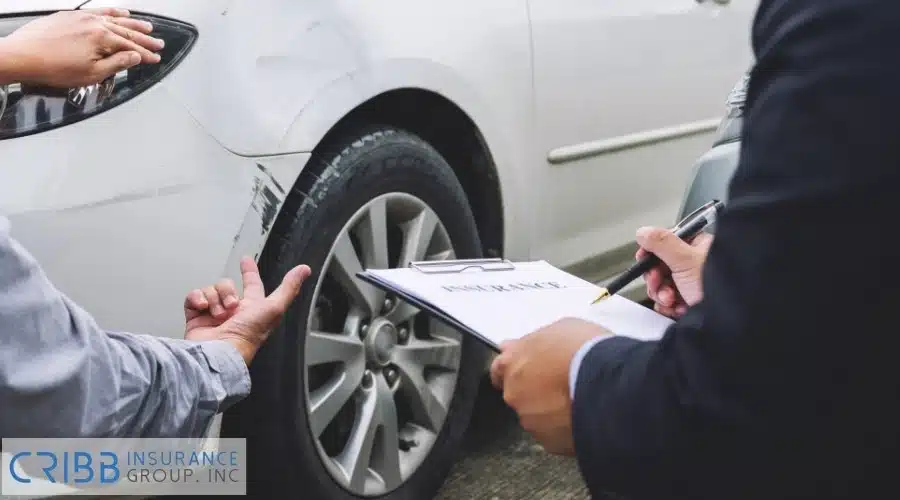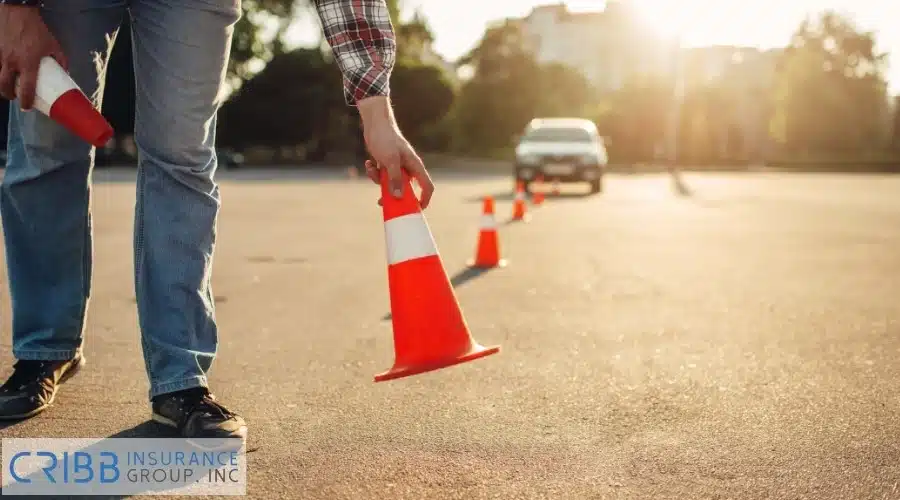If you’ve been in an accident, you may be wondering how to avoid insurance increase after accident. While accidents can raise your insurance rates, there are ways to prevent these hikes, regardless of fault. Whether it’s a minor fender bender or a significant crash, following a few simple strategies can help keep your premiums low. This article will discuss practical tips to help you maintain affordable rates after any accident.

Why Insurance Rates Increase After an Accident
Insurance companies may increase your rates after an accident for various reasons. One major factor is risk assessment. After an accident, especially where you were at fault, insurers may view you as a higher risk for future claims. However, the situation differs if the accident was not your fault, though many drivers still experience a rise in rates. Understanding these factors can help you take the necessary steps to keep your premiums low.
Steps to Prevent Rate Hikes After an Accident
After an accident, there are several steps you can take to prevent your insurance rates from increasing. While you can’t always control the outcome, staying proactive can help you maintain affordable coverage. Following these practical tips can reduce the chances of significant premium hikes after an accident, no matter who was at fault.
1. Review Your Insurance Policy
Before any accidents occur, knowing your coverage and any clauses that might affect your rates is essential. Some insurance companies have accident forgiveness programs, which could prevent your first accident from impacting your rates. Review your policy to understand what protections you have.
2. Report the Incident Promptly and Honestly
Whether you were at fault or not, it’s critical to report the accident to your insurance company immediately. Be honest about the details; discrepancies can lead to complications or rate increases later. The sooner you report the incident, the better your chances of preventing a significant premium hike.
3. Take Defensive Driving Courses
Many insurance providers offer discounts for drivers who complete defensive driving courses. This can show your insurer that you’re proactive about improving your driving skills, making it less likely that you’ll have future accidents. Enrolling in a driving course can be an effective preventative measure if you’re worried about insurance increases.
4. Consider Raising Your Deductible
Another option to avoid an insurance rate increase is to raise your deductible. While this means you’ll pay more out-of-pocket in the event of an accident, it can lower your premiums. If you’re in an accident and your rates go up, this could help mitigate the increase by reducing your monthly premium.
5. Shop Around for a Better Deal
If your current insurer raises your rates, it may be worth shopping for a new policy. Other insurance companies offer better rates, especially if you have a clean driving history or recently completed a defensive driving course. Compare rates from multiple companies to ensure you get the best deal possible.
6. Maintain a Clean Driving Record
One of the best ways to prevent future rate increases is by keeping a clean driving record after the accident. Avoid speeding tickets, traffic violations, or other accidents that could further increase your risk profile. Insurance companies reward drivers who demonstrate safe driving habits.

How to Keep Your Insurance Low After a No-Fault Accident
In no-fault accidents, many people assume their rates won’t increase. Unfortunately, this isn’t always the case. Insurance companies may still raise premiums even if you were not at fault for the accident. Here’s how you can limit the impact of a no-fault accident on your rates:
Ensure Proper Documentation
After a no-fault accident, make sure you document everything properly. This includes collecting witness statements, taking photos, and obtaining the necessary police report. Clear documentation will help prove that the accident was not your fault, which could prevent the insurer from raising your rates.
Contact Your Insurer Directly
Don’t assume your rates will rise. Contact your insurance provider to clarify how the no-fault accident will impact your premium. Many insurers have specific guidelines for no-fault accidents, and some may not raise rates at all. It’s always worth checking.
Ask About Accident Forgiveness
Some insurers offer accident forgiveness, even for no-fault accidents. If you have a good history with the company, they may be willing to overlook the accident entirely, keeping your rates unchanged. If you’re unsure whether you qualify, contact your insurer to ask about this option.
How to Maintain Low Rates After an Accident
Whether the accident was your fault or not, there are general strategies you can follow to maintain lower insurance rates:
Loyalty Rewards
Some insurance companies offer loyalty discounts to long-term customers. If you’ve been with the same provider for a while, ask about any discounts for continuing to use their services after an accident.
Review Your Coverage Regularly
As your car ages, you might not need as much coverage. For example, you might not need comprehensive or collision coverage if your car is older. Reviewing your policy and removing unnecessary coverage could reduce your premiums.
Bundle Policies
If you have more than one type of insurance, such as home or life insurance, bundling these with the same provider can lead to significant savings. Check with your insurance company about discounts for bundling policies.

Key Tips to Protect Your Insurance Premiums After a Collision
In conclusion, knowing how to avoid insurance increase after accident is essential for maintaining affordable premiums. By reviewing your policy, maintaining a clean driving record, and considering defensive driving courses, you can reduce the chances of higher rates. For more help managing your premiums, contact Cribb Insurance Group Inc. to explore options for auto insurance in Bentonville and keep your rates low.
Frequently Asked Questions
Do insurance rates go up after a no-fault accident?
Insurance rates can increase after a no-fault accident, though typically less than if you were at fault. Factors like state laws and your insurer’s policies influence how much your premiums might increase.
Will my car insurance go up if the other driver was at fault?
If the other driver is at fault, your insurance rates may rise, but generally less than if you were. If their insurer pays for the damages, it may not affect your premiums, but your insurer might raise rates.
What factors affect insurance rates after an accident?
Factors include your driving history, the accident’s severity, whether you’re at fault, your insurer’s policy, and how quickly you report the accident. Insurance companies assess these to determine the risk of future claims.
What is accident forgiveness in car insurance?
Accident forgiveness is a feature that prevents your first accident from affecting your insurance rates. Some insurers offer this as a policy add-on, particularly if you have a clean driving record and have been with them for a while.
Can a minor accident cause an insurance rate increase?
Yes, even a minor accident can result in a rate increase. However, the extent depends on your insurer’s policies and the accident’s circumstances, such as fault and whether you’ve previously had any claims.





